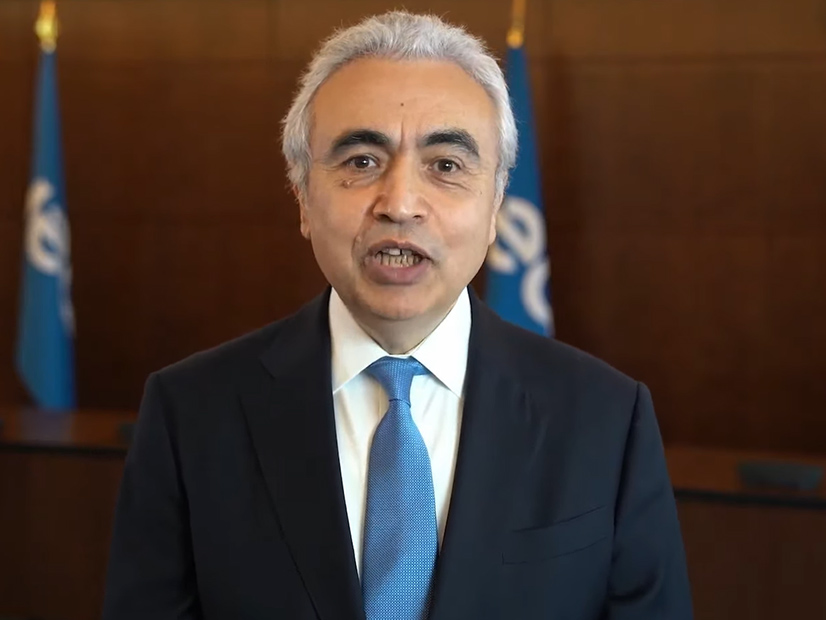Danish shipping company Maersk will launch its first carbon-neutral container ship in 2023, and starting in 2030, shipping companies in Norway will only order zero-emission vessels. Denmark is also working on an “energy island,” where power from the country’s offshore wind projects can be tapped to produce green hydrogen, and Sweden will soon be launching a “fossil-free” steel plant, also run on green hydrogen.
The message from the second day of President Biden’s virtual Leaders Summit on Climate last week was that meeting ambitious climate goals is possible, even when tackling hard-to-decarbonize sectors, like international shipping, or weaning countries and communities off their reliance on cheap but dirty coal-fired generation.
And, Special Presidential Envoy on Climate John Kerry said, smaller countries have become key innovators in developing new technologies and opening new markets. The leaders speaking on the summit’s second day — from Denmark, Israel, Kenya, Norway, Singapore and the United Arab Emirates — represent countries that “are smaller than the 20 that are providing 81% of all emissions. There are exciting things happening, unbelievable things happening,” Kerry said.
Energy Secretary Jennifer Granholm promised “bold, achievable leaps” in the U.S. as well, as part of Biden’s pledge on the first day of the summit to cut U.S. carbon emissions 50% by 2030. (See related story, Biden Commits US to Cutting GHG Emissions 50% by 2030.) Granholm’s to-do list includes lowering the cost of clean, renewable hydrogen 80% before 2030, while also slashing battery prices in half and reducing the industry’s reliance on rare earth minerals.
“We’re going to dramatically reduce the cost of industrial, atmospheric carbon capture, while we’re ramping up incentives for large-scale efforts across the world,” she said. “This is our generation’s moonshot.”
At the same time, the can-do enthusiasm of speakers like Granholm was tempered by calls for concrete action — and significant investment — over rhetoric as countries prepare for the U.N. Climate Change Conference (COP26) in Glasgow in November.
“Commitments alone are not enough,” said Fatih Birol, executive director of the International Energy Agency. “We need real change in the real world. Right now the data does not match the rhetoric, and the gap is getting wider and wider. Our latest estimates for global emissions in 2021 this year are a warning for humanity. Emissions are on track for the second largest increase in history. We are not recovering from COVID in a sustainable way.”
Further, getting to net zero by 2050 will depend on technologies that are not yet ready for market, Birol said.
The innovation needed to fill that gap “will require doing three things at once,” Microsoft founder and clean tech investor Bill Gates said. “First, we need to develop and deploy breakthrough technologies that allow us to eliminate emissions, throughout the physical economy. Second, we need to tap the power markets to fund and deploy these innovations. … Third, governments and corporations need to adopt policies that will make it faster and cheaper to make the transition, and leaders will need to reward those who take difficult steps.”
Winners and Losers
The phaseout of coal is still another critical area where the U.S. is lagging behind other, smaller countries. Israel will cut all coal-fired generation by 2024 — down from a 30% share of the nation’s power in 2019 and 60% in 2015, according to figures from the U.S. International Trade Administration.
Spanish Prime Minister Pedro Sánchez reported his country has closed its mines and most of its coal-fired generation. “By 2022, we will have phased out 85% of the standard coal power generation capacity that existed in 2018,” he said.
But, Sánchez said, “the process of decarbonization will produce winners and losers.” Spain’s dramatic reductions in coal-fired generation have been achieved by working with unions, businesses and communities “to channel direct investments, restore declining areas, support innovative industrial projects, retrain workers, and protect small and medium enterprises,” he said.
In the U.S., Biden has made a “just transition” a central tenet of his emissions-reduction plan and used the second day of the summit to announce new initiatives and funding for drawing new jobs and industries to fossil-fuel communities. The Department of Energy announced $109.5 million in funding for projects advancing carbon-capture technologies, the extraction of critical minerals from mining waste streams and the development of geothermal energy.
Another $38 billion in federal funds could be available for “infrastructure, environmental remediation, union job creation, and community revitalization efforts,” according to a new report from the Interagency Working Group on Coal and Power Plant Communities and Economic Revitalization.
A Circular Carbon Economy
Still more announcements underlined the critical role of international collaboration and U.S. participation in a growing number of global initiatives.
The U.S. will partner with the UAE on the Agricultural Mission Innovation on Climate, which will focus on “agricultural innovation and R&D for climate-smart food systems by its participants over the next five years,” according to a fact sheet from the State Department.
The Net-Zero Producers Forum will bring together the U.S., Canada, Norway, Qatar and Saudi Arabia — which together represent 40% of global oil and gas production — to “develop pragmatic net-zero emission strategies,” according to the announcement from DOE. Technologies and policies to be explored range from methane abatement to carbon capture and storage to advancing a “circular carbon economy approach.”
The U.S. is also joining the Global Power System Transformation Consortium, an international group of grid operators formed last year to accelerate and scale the clean energy transition. The National Renewable Energy Laboratory, the Electric Power Research Institute and CAISO are already partners in the coalition.









